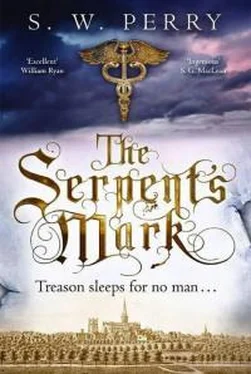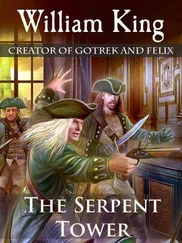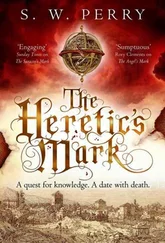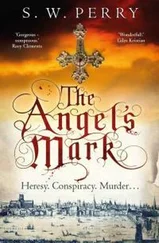‘This is Graziano,’ Bruno says proudly. ‘He is our lucky charm, our mascot. Graziano is a father to the boys when they are away from home.’
Graziano is the oldest of the crew, almost sixty, she guesses. His weather-beaten face is the colour of expensive leather, his jaw frosted with thick white stubble. He has a power and a dignity about him that would better suit a duke. If he were not a humble sailor, she could imagine him a man accustomed to giving orders and having them obeyed. He regards her with deep, clever eyes that have a familiarity she cannot place; and speaks to her as though she’s an old friend, although to her certain knowledge she’s never seen him before.
‘Signorina, it does my old heart good to see a friendly face in this heathen land,’ he says in a rich baritone that wouldn’t be out of place delivering Mass in the little church of St Margaret’s in Padua, where she’d worshipped as a child. The sound of his voice, the song of her own language, makes her feel suddenly homesick.
And then, as if they’d been waiting for Graziano to give her his blessing, the rest of the crew are bowing and grinning, doffing their caps, fussing their shirts and hoisting their mariner’s slops around their waists, as though a duchess had just stumbled upon a poor man’s game of dice, and are all eagerly drinking from the leather wine jug she’s brought with her.
All, that is, except Graziano, who stands aside as though he’s not quite one of them, even though they have appointed him their portafortuna : their lucky charm. And she catches him studying her. Studying her as if – for all the warmth of his greeting – he’s trying to decide whether she can be trusted.

Clad in a muddy riding cloak and knee-length boots, the stranger arrives at Barnthorpe the next day.
The first of the family to catch sight of him is Nicholas’s sister-in-law, Faith, who’s standing by the village well, infant on hip, complaining to Mother Haskett about the increasing number of vagrants troubling decent folk on the Ipswich road. She will say later that he looked just as she imagined the man who brought the Scots queen’s death sentence to Fotheringhay might have looked.
Barely ten minutes later, the letter he bears is safely delivered into Nicholas’s hands:
To our right worthy and learned friend, Dr Nicholas Shelby of Barnthorpe in the county of Suffolk. Know you that the President of the College of Physicians, William Baronsdale, Esq., has ordered upon this fourteenth day of February anno Domini 1591, the thirty-third of our sovereign majesty Elizabeth, that the said doctor shall present himself on the twenty-fifth day of March before the Censors of this College, to answer truthfully several and diverse charges laid upon his conduct and proficiency.
Reading the summons again, it occurs to Nicholas that any thought of returning to the world of physic might be fatally premature.
London, 4th March 1591
As Nicholas Shelby rides beneath the portcullis at Aldgate in the fragile spring sunshine, the city hits him like a fist.
The strident voices of the women traders battle for his attention and his purse. Comfits by the ounce. Sweet comfits by the ounce! Fine black bullaces, tuppence a box! Damsons, noble damsons! Labourers in cloth shirts and baggy galligaskins jostle his horse. Apprentice boys, their heads bobbing insolently beneath their caps, dart around him like minnows in a stream. A pair of pigs’ trotters wave cheerily at him, as a butcher’s lad lumbers by with half a hog’s carcass slung across his broad back. On Fenchurch Street, women out shopping for cambric and ribbons fuss each other out of his way, steering their broad farthingales to safety like errant offspring. The air is a pungent mix of ammonia from the tanners’ workshops, the waste of horse and oxen, the lanolin of sheep’s wool, the beery breath of the King’s Head tavern… every scent known to a human nostril. Sleepy Barnthorpe could be on the far side of the planet.
To return feels surprisingly good, better than he’d imagined. In truth, he has been dreading returning to the city that belongs so irrevocably to Eleanor. It is just eight months since his mastery of physic failed them both. How mockingly ineffectual his years of study, all his vaunted knowledge, had proved. None of it had stopped Eleanor and the child in her belly slipping away from him, consigning him to a grief that had then robbed him of what little else of his former life was worth keeping. His medical practice on Grass Street is gone, his friends – mostly fellow physicians – believe he has vanished into a life of vagrancy. What would they think of him now, he wonders, if they knew he had found another existence in Southwark, an existence that even now often feels as alien to him as if he were the sole survivor of a shipwreck, cast up upon some exotic island shore.
Heading down Gracechurch and into New Fish Street, he passes the fine new houses that no ordinary soul can afford to rent. He crosses London Bridge, riding slowly between the shops and houses that cling to it like huge square barnacles made of plaster, brick and wood – a whole city thoroughfare laid across the water on stone pillars. At the far end he passes beneath the great gatehouse that guards the southern approaches to the city. Around its top the skulls of executed traitors set on spikes seem to smile at him: Welcome home, Dr Shelby! We may be long past curing, but there’s work down there for you to do amongst the living .
It’s almost dusk when Nicholas returns his rented horse to the ostler at the sign of the Tabard. He makes the last part of his journey on foot, through the lengthening shadows. Slung almost jauntily over his shoulder is a small leather drawstring sack with his few possessions: clean hose, a day shirt, his ivory comb, his nightshirt. It also contains his purse. He’s on Bankside now. True Banksiders don’t carry their purses on their belts.
The Jackdaw tavern stands halfway down a narrow alley to the south of the Mutton Lane river stairs, in the liberty of Southwark. Once a hostelry for the pious visiting the nearby monastery of St Saviour’s – long since cast down – it has occupied this spot since the reign of the second Richard. Indeed, there are some who will tell you it served its first quart of stitch-back to great Caesar himself, when he found himself suddenly in need of ale and oysters on his way up from the coast. Just as its less judicious patrons sometimes need a little support when they leave, so too does the Jackdaw look to its neighbours to keep it from toppling over. Its old beams sag with inebriated contentment between the houses to left and right. The lodging rooms on the upper floors seem frozen in the act of falling into the street after too much of an indulgent night. When the wind is from the north, you can smell the river mud even above the scents from the new brew-house that Bianca Merton has installed on the far side of the rear courtyard.
When he sees the apothecary’s sign hanging alongside the Jackdaw’s own, he allows himself a contented smile. One of his last acts before leaving for Barnthorpe had been to seek the help of his friend, Lord Lumley, the patron of the College of Physicians’ chair of anatomy, in procuring the licence from the Grocers’ Guild, which manages such things in the city. It would appear Lumley has kept his word.
The flickering candlelight beckons to him through the tiny lozenges of pitted glass that make up the Jackdaw’s lopsided windows. For a moment he hesitates. It’s an ingrained reticence. It stems from what his father calls ‘the evil harvests’. When famine threatens and the pottage bowl only goes so far, you wait your turn; father and elder brother must eat their share first, because they are more use on the land than a ten-year-old.
Читать дальше











